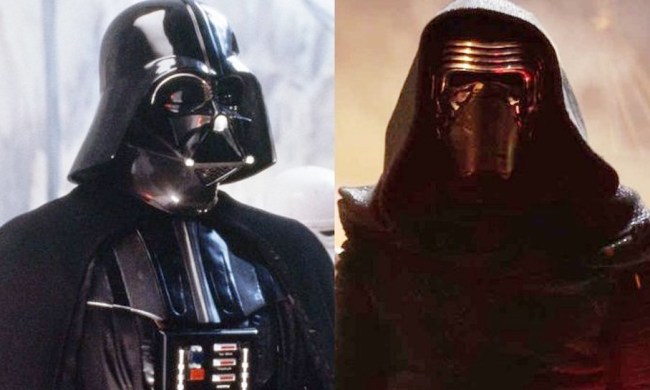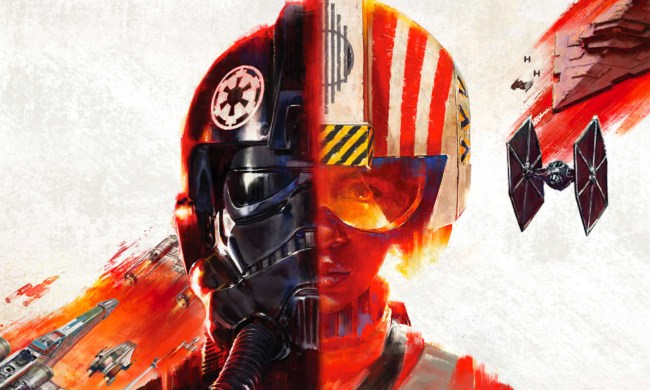When it comes to fickle fanbases, the Star Wars and Game of Thrones fandoms are right up there among the most critical of the bunch — and for good reason. Both franchises are among the most popular in the world within their respective genres, and are based on rich mythologies that span generations of characters, events, and the fictional timelines.
When it was announced back in 2018 that Game of Thrones creators David Benioff & D.B. Weiss were developing a new trilogy of films for the Star Wars universe, it initially seemed like a match made in genre heaven — only to have the partnership dissolve with the unexpected announcement this week that the duo no longer had plans for a galaxy far, far away.
In hindsight, the Star Wars universe probably dodged a Valyrian-steel bullet with their departure.
While the initial announcement of their three-film Star Wars project was generally met with excitement from Star Wars and Game of Thrones fans alike, the luster of that fandom-merging arrangement faded quite a bit over the last year and a half. From the disappointment of Game of Thrones‘ final season, to a string of revelations about how Benioff and Weiss approached their landmark show, to the general reorganization of the Star Wars universe over the last year on the big screen and the Disney+ streaming service, a lot can change in 20 months.
The failed finale effect
Despite seven seasons of gripping, award-winning drama, Game of Thrones will likely be remembered — for a few more years, at least — as a show that couldn’t stick the landing. Like Lost and The Sopranos before it, Game of Thrones is destined to be haunted by its highly criticized conclusion, which seemingly left no one satisfied and made a fanbase that spent a decade debating who would end up on the Iron Throne wishing they never got the answer to that question.
Imagine that sort of misstep on a project with the scale of the Star Wars universe, and suddenly that third film in the Game of Thrones duo’s Star Wars trilogy starts feeling like something to be worried about instead of a source of excitement.
Don’t believe me? Just ask a wide swath of Star Wars fans how they feel about Star Wars: The Last Jedi filmmaker Rian Johnson’s upcoming trilogy of Star Wars films.
Despite earning overwhelming praise from professional critics and the second-highest ticket sales of the franchise to date, Johnson’s 2017 film is regarded as one of the most polarizing installments of the Star Wars franchise, with some fans calling it the worst Star Wars movie ever made and others calling it one of the best. No matter where you fall on that spectrum, there’s no denying that the response to the film had a profound effect on the Star Wars franchise — and not in a good way.
After months of controversy and debate centering on The Last Jedi, the backlash from all of that discontent seemed to fall squarely on Solo: A Star Wars Story, the 2018 film that followed The Last Jedi and became one of the lowest-grossing and worst-reviewed films in the franchise. Targeted by a fan boycott in response to The Last Jedi and a victim of its five-month proximity to its controversial predecessor, Solo performed so poorly that Disney ended up dramatically scaling back its plans for the big-screen side of the Star Wars universe.
Given all of that, if Star Wars fans, angry about the way their favorite characters were handled in the middle chapter of a movie trilogy, prompted Disney to scale back production on one of the biggest franchises of all time, just imagine what Game of Thrones season 8-level disappointment might do to the sci-fi saga.
And that’s not the only reason the franchise is better off without the Game of Thrones duo.
Not feeling The Force
During an appearance at the Austin Film Festival — one of their first public panel events since Game of Thrones concluded — Benioff and Weiss generated a lot of attention for comments they made while explaining how they got the series green-lit by HBO and their approach to the mythology created by George R.R. Martin for his A Song of Ice and Fire series (the source material for the show).
According to various reports from the panel, one of the recurring themes in Benioff and Weiss’ recollection of that formative period in the series was how unprepared they were to tackle a project on that scale, and how often they found themselves learning as they went along with Game of Thrones. It’s no secret that their original pilot for the series was notoriously bad — a fact they confirmed in the panel — but their recollection also included a lot of surprisingly frank (and eyebrow-raising) confessions about how under-qualified they were to produce such a series.
In a now-viral thread on Twitter, one attendee at the panel highlighted some of the pair’s comments about the origins of the show and their involvement with it.
David is describing the pre-meeting with GRRM who was questioning their bona fides and “we didn’t really have any.” We had never done TV and we didn’t have any. We don’t know why he trusted us with his life’s work.”
— Pledged to The Blacks (@ForArya) October 26, 2019
Two months before the pilot was to air, the episodes were averaging 39 minutes and HBO made then write and film 100 minutes of scenes to meet their contractual obligations. For example, they added a scene with Robert and Cersei – and realized that there was no scene with them.
— Pledged to The Blacks (@ForArya) October 26, 2019
While there’s something to be said for a mix of dumb luck, opportunity, and a supremely talented cast all playing into the unique success that was (the majority of) Game of Thrones, there’s an equally strong argument to be made that rolling those dice a second time — on a project without the narrative foundation that Martin’s novels provided them at the start with the scale of Star Wars — might not be the wisest decision.
According to reports from the panel, even Benioff and Weiss didn’t see the need to adapt the material too faithfully — choosing instead to downplay the magic and fantasy elements of Martin’s series and hoping the executives at HBO didn’t read the novels. In doing so, they hoped to make it appealing for than just “that type of fan.”
Dan wanted to remove as many fantasy elements as possible bc “we didn’t just want to appeal to that type of fan.” They wanted to expand the fan base to people beyond the fantasy fan base to “mothers, NFL players”…
— Pledged to The Blacks (@ForArya) October 26, 2019
One can only wonder what type of audience Benioff and Weiss’ trilogy of Star Wars films would cater to, given that many of the most brutal elements of Martin’s stories were deemed important enough to preserve for the HBO series, while the fantasy elements were deemed disposable. And given that Star Wars fans don’t tend to look too kindly on filmmakers (or studios) who casually dismiss the generations of canon established in the franchise, the pair’s approach could be a recipe for box-office disaster if they carry over their Game of Thrones approach to Star Wars.
And let’s be honest: Star Wars: The Phantom Menace already delivered an installment of the series that leaned (a bit too heavily) into political machinations on a galactic scale, so it’s difficult to get overly excited about the pair winging their way through similar themes while discarding many of the fantastic elements that made that film even remotely tolerable.
Not the franchise you’re looking for
Of course, none of this is intended to suggest that the Game of Thrones duo aren’t a talented pair of creators with tremendous potential to replicate their success with another project.
It’s entirely reasonable — and expected, given what they achieved already — to look forward to whatever they have planned next. In announcing their departure from the Star Wars universe, they indicated that their massive deal with Netflix to produce original content for the streaming service was behind their exit from Disney’s sci-fi franchise.
Netflix has already proven itself to be a great home for original storytelling that pushes boundaries and gives its creators a tremendous amount of room (and money) to grow and create the series they want to make. All things considered, that feels like a far better place for Benioff and Weiss to solidify their bona fides as creators and prove that the success of Game of Thrones owed as much to their creative vision and evolving talents as it did all of the other factors attributed to it.
Given all of the excitement a year and a half ago, it seems strange to suggest that the creative path with the most potential for the Game of Thrones creators might not head in the direction of Star Wars, but for now, Benioff and Weiss — and Star Wars, for that matter — really are better off without each other.



